








Airlines, Airports and Airliners News - 23 to 30 Aug 2020 COMAIR'S BUSSINESS RESCUE PLANS COMES WITH CONDITIONS  On 5 May this year Comair, South Africa's oldest private airline, announced that it had entered into voluntarily business rescue as it did not have sufficient working capital to pay expenses and debt obligations. Sources state that after protracted negotiations, a group of investors has now agreed to come to the rescue of the embattled by making an offer to inject R500-million into the JSE-listed airline operator. If excepted, Comair, who operates low cost Kulula and a British Airways concession will delist from the JSE and have a new management and board. If the offer is not approved, Collyer and Ferguson, the business rescue operators, would move to a structured wind-down of Comair operations. TRAVELERS FACE RISK OF PENALTIES FOR REFUSING TO WEAR FACE COVERINGS  Wearing face coverings is a key recommendation of the International Civil Aviation Organization's (ICAO) guidance for safe operations during the pandemic, as developed jointly with the World Health Organization and governments. IATA is emphasizing the need for passengers to comply with the recommendation following recent reports of travellers refusing to wear a face covering during a flight. While this is confined to a very small number of individuals, some on-board incidents have become violent, resulting in costly and extremely inconvenient diversions to offload these passengers. A plane ticket is a contract under which the passenger agrees to the airline's terms and Conditions of Carriage. Those conditions can include the airline's right to refuse carriage to a person whose behaviour interferes with a flight, violates government regulations or causes other passengers to feel unsafe. Airlines also highlight the need to wear a face covering during the booking process, at check-in, at the gate and in onboard announcements. Failure to comply means that a passenger faces the risk of being offloaded from their flight, restrictions on future carriage or penalties under national laws. COLOMBIA TAKES AN IMPORTANT STEP TOWARDS RESTARTING AVIATION 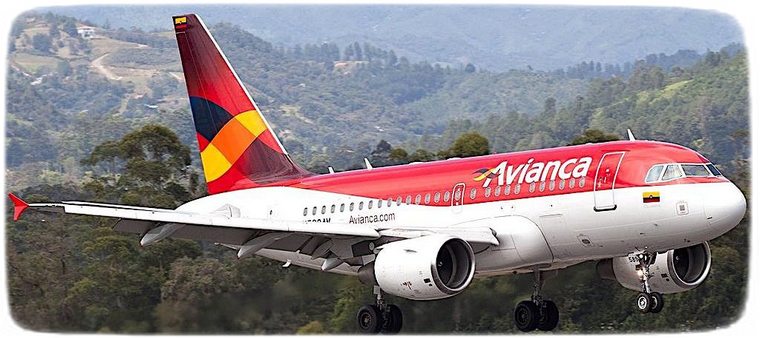 "Air transport is an essential public service that people need for different reasons, such as work, health, family or leisure purposes. Aviation's prospect to restart is good news which will allow for the resuming of mobility and integration of the country. With this decision, the sector and its extensive value chain, which includes tourism and commerce in Colombia, can begin to rebuild. While this is the first step towards a total reopening, we call on the government to continue the open channels of communication with the industry that will allow us to commence the process for also reactivate international flights," said Peter Cerdá, IATA's Regional Vice President for the Americas. With the biosafety protocols approved by Colombian authorities and implemented by the industry, aviation will not become a vector for spreading the virus. The industry has demonstrated that all safeguards exist to restart the industry. Proof of this are the more than 70,000 passengers who have travelled in the last five months on humanitarian flights and the first test route between Bucaramanga and Cúcuta, which has transported more than 1,000 passengers, indicating that there is demand for the reactivation of the sector in the country. Furthermore, no known COVID-19 transmissions have been reported from these flights. Aviation is a catalyst for economic development, progress and social integration. Every time a person travels, it triggers a domino effect of contribution, value and consumption. Before the crisis, aviation contributed some US$ 7.5 billion to the Colombian economy, equivalent to 2.7% of the country's GDP, and supports some 600,000 direct and indirect jobs. "There are still several issues that need to be resolved soon, however, aviation will once again take off in Colombia. This will allow our industry to become one of the pillars of the economic recovery of the country after the pandemic," concluded Cerdá. SCHIPHOL, TRAFFIC AND TRANSPORT FIGURES FOR JULY 2020 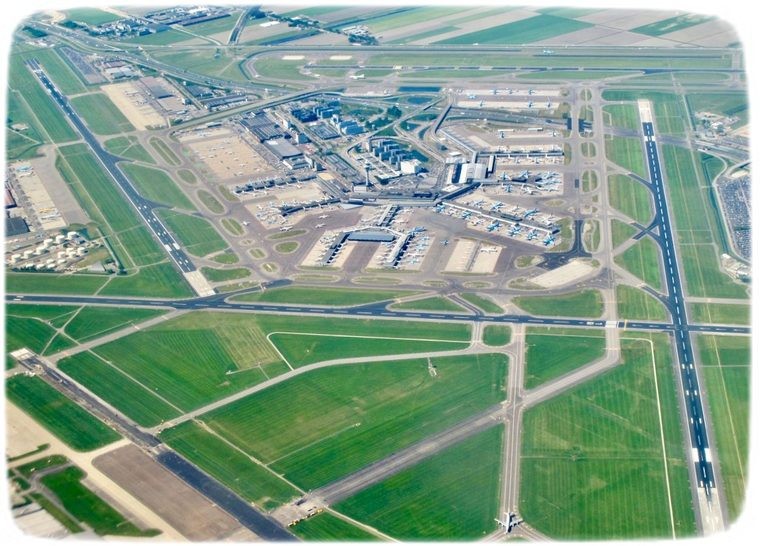 There was a surge in activity at the beginning of July, partly due to governments lifting travel restrictions. On the quietest day last month, 1st July, there were 367 air transport movements. The busiest day was 31st July, when there were 579 air transport movements. The number of daily passengers doubled last month, from more than 28,000 passengers on 1st July to over 58,500 on 31st July. One of the reasons for this was the start of the holiday season. The start of the holiday season in the Netherlands and the rest of Europe has led to a relative revival in the number of passengers going to traditionally popular holiday destinations such as Spain, Italy, France and Portugal. Compared to last year, the number of travellers remains limited and these countries have seen a decrease in traveller numbers, varying between 57% and 75%, compared to July 2019. Intercontinental air traffic presents a different picture. The number of passengers to and from China, the United Arab Emirates and North America, for example, are significantly lower (between 86% and 92% fewer passengers). However, due to an increase in full cargo flights, the total decrease in intercontinental air transport movements compared to 2019 is only 50%. IATA STATEMENT ON SINGAPORE'S UPDATED BORDER MEASURES  “COVID-19 has dealt a massive blow to the airline industry and the road to recovery is going to be long and slow. Our latest forecast indicates that travel demand will not return to 2019 levels until 2024, a year later than had been previously expected. Key to the recovery is the opening of borders and the lifting of travel restrictions and measures such as quarantine. Today's announcement is positive and a step in the right direction. We hope to work closely with the government so that Singapore's aviation industry can restart safely while mitigating the possibility of COVID-19 transmission. And we urge other states in the region to look at ways to resume international travel safely, including through the implementation of travel bubbles,” said Conrad Clifford, IATA's Regional Vice President for Asia-Pacific. “The impact of COVID-19 is unprecedented and the airline industry is on life support. The additional financial measures announced by Deputy Prime Minister and Finance Minister Heng Swee Keat earlier this week is a big help and greatly appreciated by the industry. And the recent remarks by Transport Minister Ong Ye Kung is reassuring and a breath of fresh air as the government clearly recognizes aviation's strategic contribution to the Singapore economy. Having a viable aviation industry will be critical to economic recovery by ensuring effective connectivity with the rest of the world for the movement of people and goods,” said Clifford. The global airline industry is expected to lose US$84.3 billion in 2020. Asia-Pacific airlines will post the largest absolute losses at US$29.0 billion. Global passenger numbers are expected to decline by 55% compared to 2019. KLM WILL FLY TO HANGZHOU AGAIN 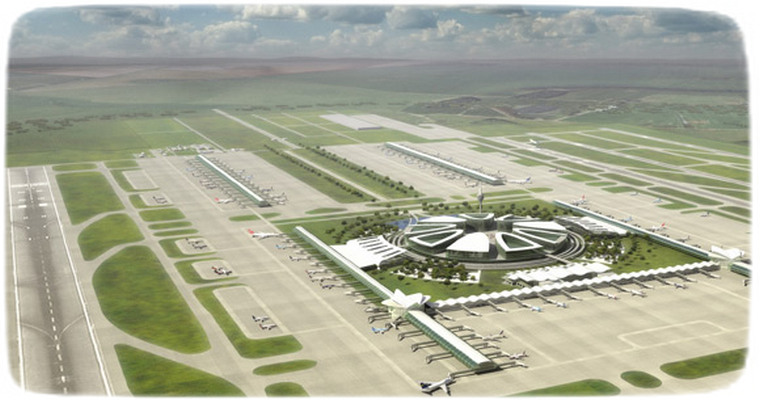 KLM's passenger flights to mainland China were suspended at the beginning of February in connection with COVID-19. Thanks to relaxation of travel restrictions by the Chinese government, KLM was able to resume passenger flights to Shanghai on 21 July. The passenger flight to Hangzhou is now added as the second Chinese destination. KLM has continued to transport cargo to and from China. Naturally, KLM has taken measures to ensure that flights are safe for both passengers and staff. For example, face masks are mandatory when boarding and during the flight, extra hygiene equipment is on board and KLM's aircraft are additionally cleaned using suitable cleaning agents. The air on board is quickly refreshed using HEPA filters. KLM complies with the strict requirements set by the Chinese government for the resumption of international flights. This means that passengers must complete a health declaration online and that the temperature of passengers is checked. The toilets, for example, are also inspected extra frequently during the flight. Furthermore, there are as few contact moments as possible between crew and passengers, which means there is limited catering available on these flights. EASYJET CONFIRMS CLOSURE OF THREE UK BASES 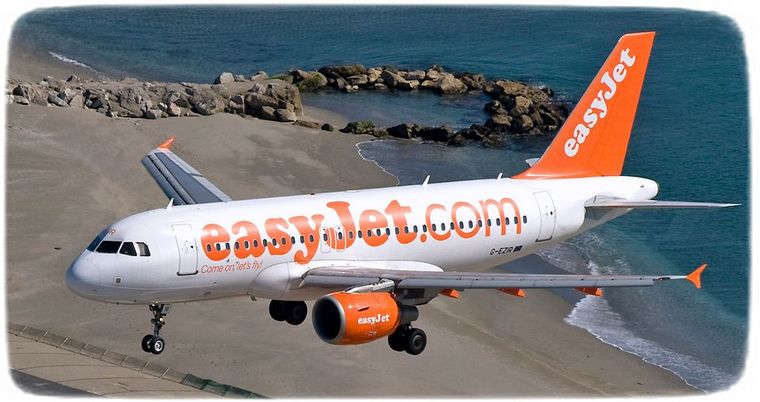 During the consultation we have identified ways to reduce the numbers of proposed compulsory redundancies across the business as a whole by offering enhanced voluntary redundancy packages to all UK crew as well as looking at additional options like part time and seasonal contracts, base transfers where possible and unpaid leave. As a result, the number of compulsory redundancies will be significantly reduced, for example through the consultation process with Unite 93% of our cabin crew who were at risk of redundancy have opted for an enhanced voluntary redundancy package. easyJet will cease based operations from London Stansted, London Southend and Newcastle from 31 August 2020. London Stansted and Newcastle will remain part of easyJet's route network and some domestic and international flights will continue to operate, served by inbound flying from other bases across the network. We will be informing affected customers of their options which include transferring to another airport or receiving a full refund in the coming days. Johan Lundgren, easyJet CEO, said: “We have had to take the very difficult decision to close three UK bases as a result of the unprecedented impact of the pandemic and related travel restrictions, compounded by quarantine measures in the UK which is impacting demand for travel. Working closely with our employee representatives, I am pleased that we have been able to identify ways to significantly reduce the number of proposed compulsory redundancies through providing enhanced voluntary redundancy packages for all UK crew alongside additional options like part time and seasonal contracts, base transfers and unpaid leave which we expect to result in reducing the number of job losses overall. We would like to reassure customers due to fly from these airports that we are now contacting anyone whose flight is affected with clear advice on their options which include rerouting via alternative airports or receiving a full refund. I know this is a very difficult time for our pilots and crew and I would like to thank them for their continued professionalism.” Since the pandemic began, easyJet has taken decisive actions to remove cost and non-critical expenditure from the business at every level to mitigate the impact however IATA forecasts suggest that the levels of market demand seen in 2019 are not likely to be reached again until 2024. UK quarantine rules have also created uncertainty for customers and an impact on demand for travel. easyJet remains committed to its UK operations which remain its largest. The airline will continue operate at eight UK bases, serving over 490 routes serving 52 million customers in the UK. easyJet will continue to review its network and bases to ensure they are optimised in the current environment. RENOVATION OF RUNWAY 07L/25R AT BRUSSELS AIRPORT COMPLETED THIS WEEKEND 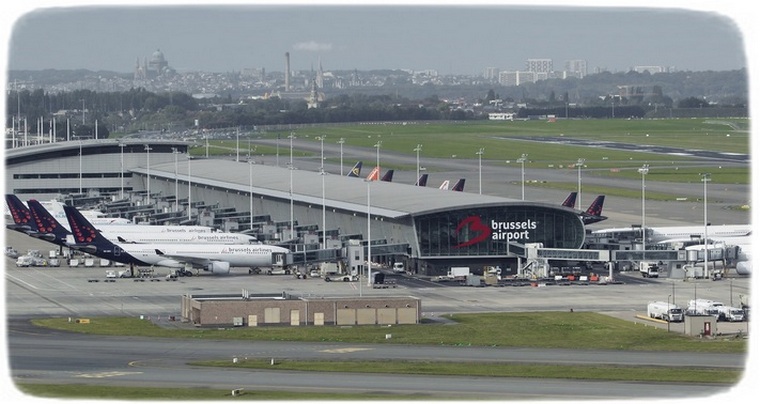 The renovation works of the main runway of Brussels Airport, runway 07L/25R, which started on 13 July, will be completed on the 23rd of August. This means that the runway can be put back into service as planned. Thanks to good preparation together with all stakeholders, the hard work of all contractors and the favourable weather conditions at the important moments the works were always on schedule. In total, more than 100,000 hours of work were performed in 6 weeks by around 400 people per day. In total, about 1000 people have worked on this project. Thanks to this renovation, the life span of the runway is extended by at least 15 years. The work carried out on the runway was very extensive. The top layers of asphalt were milled and replaced over almost the entire surface of the runway (3.3km by 60m). The lighting system of the runway, including all cabling, was replaced. In places where this was not yet the case, the lighting was replaced by energy efficient LED lighting. The drainage system was also renovated with new channel drains and sewage pipes. Other works were also carried out on the cabling of the data network and the airfield light poles, as well as lawn repairs. After the last security tests, the renewed runway 07L/25R will be reopened at 6 am on Sunday 23 August. From then on, we go back to the preferential runway use as determined by the federal government. QATAR AIRWAYS REBUILDS NETWORK TO MORE THAN 550 WEEKLY FLIGHTS TO OVER 85 DESTINATIONS  The airline's continuous operations throughout the pandemic and its variety of fuel-efficient efficient aircraft has also enabled it to rapidly increase frequencies, offering passengers more flexible travel options to many destinations. Qatar Airways Group Chief Executive, His Excellency Mr. Akbar Al Baker, said: “Since the onset of the pandemic Qatar Airways network has never fallen below 30 destinations with continuous services to five continents. Our airline has led the industry in offering passengers more choices and greater flexibility so they can plan and book travel with confidence. We have also implemented the most advanced safety and hygiene measures onboard including becoming the first airline to require passengers to wear face shields in addition to face coverings. To ensure travellers can plan their travel with peace of mind, the airline has also extended its booking policies to offer even more choice to its passengers. The airline will allow unlimited date changes and passengers can change their destination as often as they need if it is within 5,000 miles of the original destination. The airline will not charge any fare differences for travel completed before 31 December 2020, after which fare rules will apply. All tickets booked for travel up to 31 December 2020 will be valid for two years from the date of issuance. According to the latest IATA data, Qatar Airways has become the largest international carrier between April to June by fulfilling its mission of taking people home. This enabled the airline to accumulate unrivalled experience in carrying passengers safely and reliably and uniquely positioned the airline to effectively rebuild its network. The carrier has stringently implemented the most advanced safety and hygiene measures on board its aircraft and in Hamad International Airport. DUBLIN AIRPORT PASSENGER NUMBERS DOWN 89% IN JULY  Passenger volumes to and from continental Europe fell by 86%, as 265,000 people travelled to and from European destinations last month. UK traffic declined by 91% compared to last July, with almost 87,000 passengers travelling to and from Britain during the month. Passenger volumes to and from North America decreased by 96%, as almost 20,000 passengers travelled on transatlantic routes during July. Other international passenger traffic to the Middle East fell by 96%, with just over 6,600 passengers travelling last month. The number of passengers on domestic routes decreased by 73%, as more than 2,900 people took domestic flights in July. Just over 5.7 million passengers have travelled through Dublin Airport in the first seven months of this year, which is a 70% decrease compared to the same period last year. The impact of COVID-19 has resulted in 13.25 million fewer passengers using Dublin Airport so far this year. EU COMMISSION GIVES THE GREEN LIGHT FOR BRUSSELS AIRLINES STABILIZATION PACKAGE  The EU Commission has also given its approval. The stabilization package of 460 million euro - €290 million from the Belgian Federal government and €170 million from Lufthansa - covers in part the losses incurred by Brussels Airlines due to the crisis and secures at the same time tens of thousands of direct and indirect jobs that are linked to the activities of Brussels Airlines. Thanks to the package, the airline can finance its turnaround plan and herewith create a long-term and structurally profitable future. Dieter Vranckx, CEO of Brussels Airlines: “With this news, we finally conclude the three pillars of our survival and long-term competitiveness. We are relieved that the execution of the financial transaction can take place. We will now shift all our focus towards a timely implementation of our turnaround plan Reboot Plus. Thanks to the support and trust we receive from our shareholder Lufthansa, the Belgian government and from all our employees, we can create a strong and competitive Brussels Airlines with long-term perspectives, an important engine for the Belgian economy. For that, I sincerely thank all involved parties.” AIR NEW ZEALAND ADJUSTED ITS BUSINESS QUICKLY TO MANAGE THE IMPACT OF COVID-19 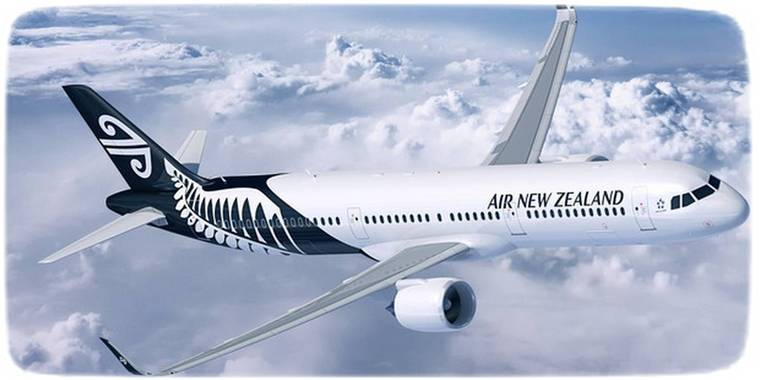 Air New Zealand has reported a loss before other significant items and taxation of $87 million1 for the 2020 financial year, compared to earnings of $387 million in the prior year. Despite reporting a strong interim profit of $198 million2 for the first six months of the financial year, and seeing positive demand on North American and regional routes early in the second half, Covid-related travel restrictions resulted in a 74 percent drop in passenger revenue from April to the end of June compared to the prior year, which drove the airline's operating losses. Statutory losses before taxation, which include $541 million of other significant items, were $628 million, compared to earnings of $382 million last year. Non-cash items of $453 million reflected most of the other significant items, including the $338 million aircraft impairment charge related to grounding of the Boeing 777-200ER fleet for the foreseeable future. The airline has responded to this crisis with urgency, including securing additional liquidity, structurally reducing its cost base and deferring significant capex spend, while ensuring that the business remains well positioned to grow profitably when travel restrictions are eventually removed and customer demand returns. Air New Zealand's Chairman Dame Therese Walsh says she is proud of the way the business has responded to this crisis, acting with speed and agility to lower the cost base and pivoting quickly to ramp up domestic and cargo services to help keep the New Zealand economy moving. These actions, along with the strategic review the airline has undertaken in parallel to managing this crisis, ensure that Air New Zealand remains in a strong and competitive position when travel restrictions lift. “The 2020 financial year has been a year of stark contrast. Air New Zealand had a solid start to the year and was focused on driving profitable growth into the second half. We were also preparing to launch the first ever non-stop link between New Zealand and New York and had announced several exciting innovations in the customer experience space. www.youtube.com/channel/UCCuRVZAGodT6sztTeXBGeMw and subscribe to our YouTube channel  |
                   |
 |
 |

Copyright © Pilot's Post PTY Ltd
The information, views and opinions by the authors contributing to Pilot's Post are not necessarily those of the editor or other writers at Pilot's Post.